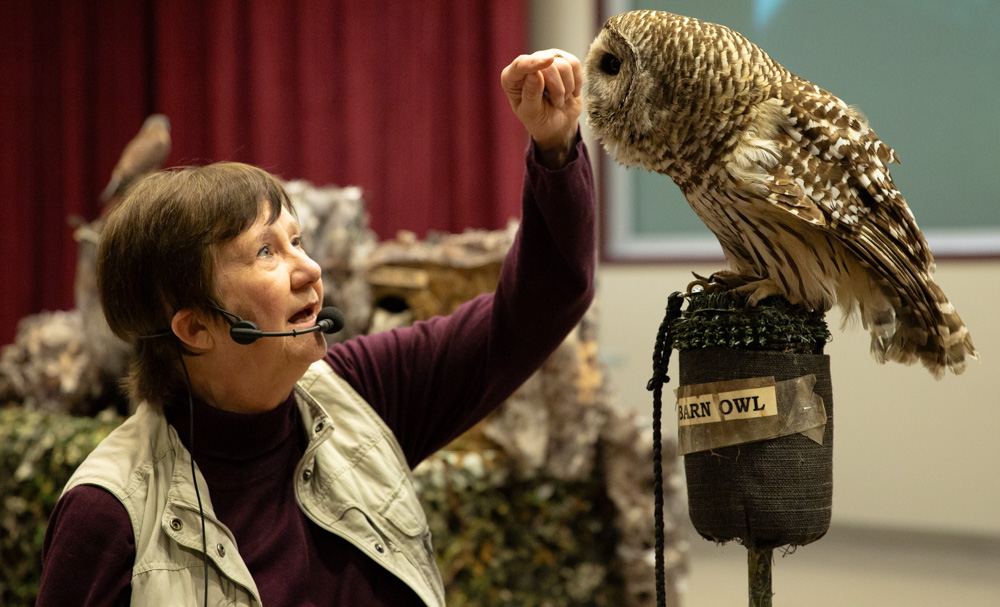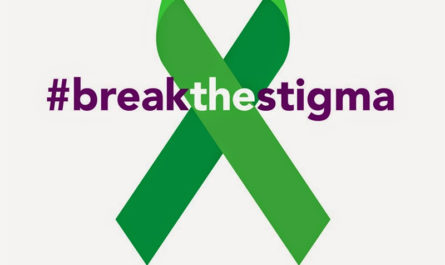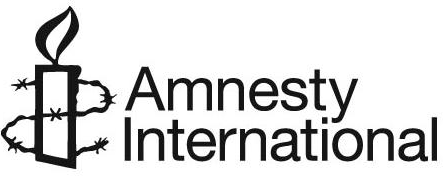A presentation on birds of prey was given by Cindy Page of the Page Wildlife Center on Monday, April 1 at Herkimer College’s Robert McLaughlin College Center. It was free of charge and open to the public.
The birds had suffered injuries that, in most cases, prevent them from being able to fly properly — drastically decreasing their chances of survival in the wild. Page brought six specimens in total: a sparrow hawk (also known as a kestrel), an eastern screech owl, a barn owl, a barred owl, a great horned owl (also known as an eagle owl), and a turkey vulture. A peregrine falcon was brought to the center on the morning of the presentation but was not able to make the trip to Herkimer.
“I’ve always loved animals,” Page said when asked about her wildlife center which is located near Syracuse, NY. “I would be the one in the neighborhood when I was a little girl that ended up with a little bunny that seemed to need help. When I was young, I didn’t know the right food or the right caging. And over the years, I’ve studied how to take care of them the proper way. There’s a system of getting permits and doing it the right way and having the right foods on hand and the vet care so that you could have a chance to set them free.”
Along with showing the birds to the enthusiastic audience, Page also presented some interesting facts about her avian friends. For instance, did you know that except for some birds that hunt fish and the turkey vulture, most birds worldwide have no sense of smell? Speaking of the turkey vulture, Page informed the audience that the digestive juices of the turkey vulture are so powerful that they kill the most powerful germs and bacteria, including E .coli. This is especially important since the turkey vulture is a scavenger and typically feeds on animals that have already been killed and in various stages of decomposition.
Page said that her wildlife center is on the Animal Help Now list. To learn more about the Page Wildlife Center, visit https://pagewildlifecenter.com.




